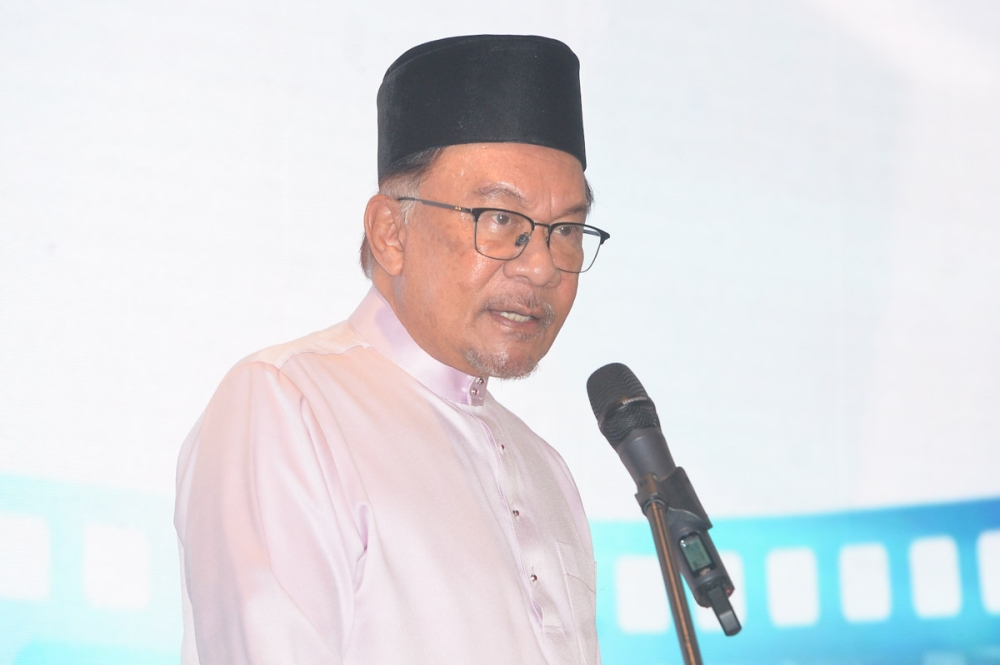KUALA LUMPUR, Oct 2 — As Malaysia grapples with economic challenges, political analysts are calling for a Cabinet reshuffle in Prime Minister Datuk Seri Anwar Ibrahim’s administration, with a focus on filling the vacancy left by the death of Datuk Seri Salahuddin Ayub, who had been the domestic trade and cost of living minister.
The prevailing sentiment among analysts is that Parti Amanah Negara (Amanah) should be entrusted with this crucial role, citing the party’s recent electoral successes as a testament to its ability. Amanah scored significant victories in both the Pulai and Simpang Jeram by-elections, which they said underlined its continued relevance and influence in Malaysian politics.
“If based on the Cabinet allocation to political parties, it could fall back to Amanah, especially since Amanah’s double victory in Pulai and Sg Jeram recently, which proves that it’s not a spent force,” said Universiti Sains Malaysia (USM) political science professor Ahmad Fauzi Abdul Hamid.
“Anwar has no shortage of choices in Amanah’s parliamentarians from former minister Datuk Seri Dzulkefly Ahmad to the new MP Suhaizan Kayat, a former PAS Youth chief. Anwar won’t go to DAP as that would lay him vulnerable to accusations of being anti-Malay when Umno is facing a hard time defending the Malay-majority constituency of Pelangai in Pahang.
“Going for an Umno MP to replace Salahuddin is also imprudent in view of Umno’s dismal performance in the recent state elections.”
This call for a reshuffle comes at a time when Malaysia is facing economic uncertainty, marked by a depreciating ringgit and a possible resurgence of the cost-of-living crisis that had appeared to be reined in along with inflation.
Nusantara Academy for Strategic Research (NASR) senior fellow Azmi Hassan said Anwar must demonstrate his commitment to effecting necessary changes in the reshuffle, particularly when dealing with underperforming ministers within his government.
While both Azmi and Ahmad Fauzi endorsed Amanah as the favoured choice for the vacant ministerial position, they acknowledged the political intricacies inherent in a coalition government. Anwar must navigate these complexities and balance the interests of the various parties within his coalition.
“Critical ministries that are underperforming like those that aren’t handling the rice crisis or rising food prices would require a reshuffle,” said Azmi when contacted.

“There is a need to appoint ministers who are creative, courageous in making bold decisions and untainted by negative perceptions. Not someone who had a lot of negative stigma around him like Rafizi (Ramli), who had that aura during his Opposition days. Find the neutral ones who are capable of performing so that the perception of the government isn’t one of underperformance.”
In the wake of Chief Secretary to the Government Tan Sri Mohd Zuki Ali’s announcement of key bureaucratic changes, which some interpret as an attempt to mask poor performance, speculation about a Cabinet reshuffle intensified.
Singapore Institute of International Affairs senior fellow Oh Ei Sun said there was demand for ministers with strong financial backgrounds, suggesting that individuals like Titiwangsa MP Datuk Seri Johari Abdul Ghani should hold crucial portfolios such as finance, drawing parallels to the successful tenure of Tun Daim Zainuddin.
“The market wants to see a seasoned businessman helming the Finance Ministry just like Tun Daim before. Such a large portfolio that not only handles the country’s budget and taxation but also plays a role in economic policy, investment promotion, and financial stability would need an individual appointed to this position who should be capable of overseeing a broad range of financial matters.
“Ministries that are underperforming and have made no significant steps in the right direction like the health and education ministries should be relegated to unimportant ministries,” he said
Amid ongoing challenges, Anwar’s government faces scrutiny over the performance of ministries, including health, education, human resources and agriculture. Analysts agree that a case-by-case approach should be adopted when considering a Cabinet reshuffle, with an emphasis on bolstering critical posts related to the economy and food security.
“The ministers have been in their positions for less than a year. Some have probably been under-performing, but to dub them as dead weights would be premature. Perikatan Nasional MPs, if they had been sworn in as the government in November 2022, would have most possibly done the same, if not worse. Bad economic times are a global phenomenon, not peculiar to Malaysia,” said Ahmad Fauzi.
Previously, a news outlet suggested that Anwar could use filling Salahuddin's vacancy as an opportunity to reshuffle his Cabinet after the Pelangai by-election on October 7.
On Wednesday, Anwar said he needed to consider matters first when asked about the rumours that he was planning to reshuffle his Cabinet.
Last night, Deputy Prime Minister Datuk Seri Ahmad Zahid Hamidi said he believed a Cabinet reshuffle would likely happen and soon.






















